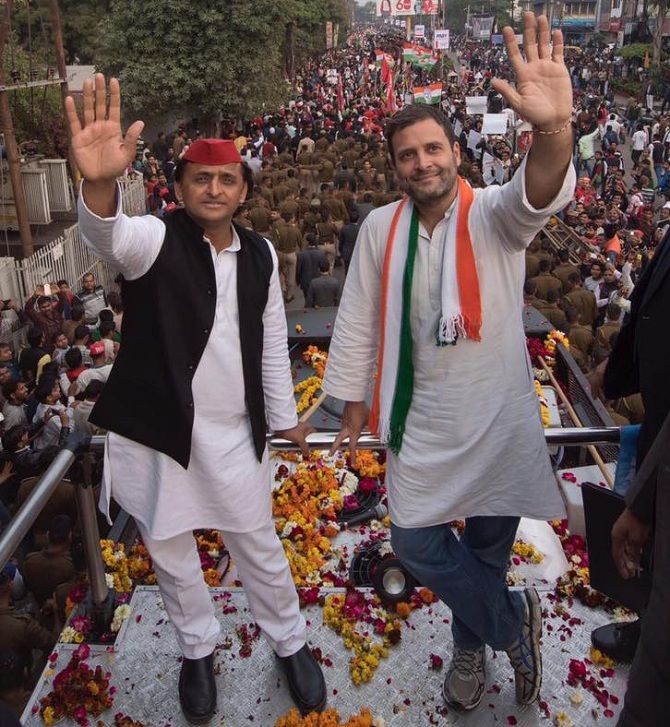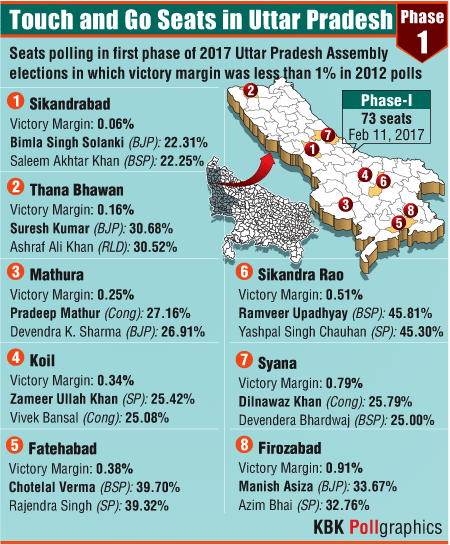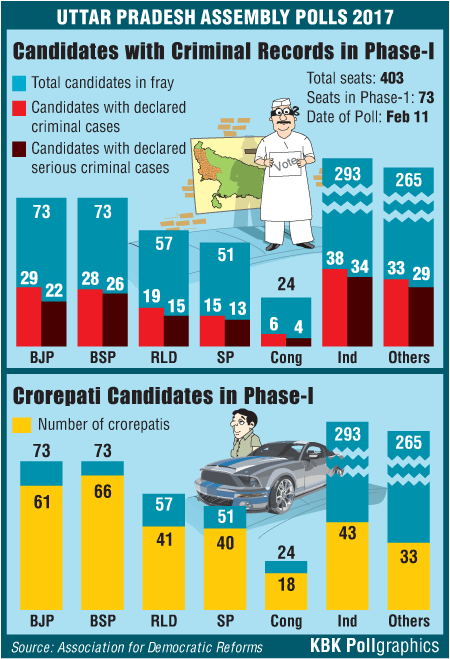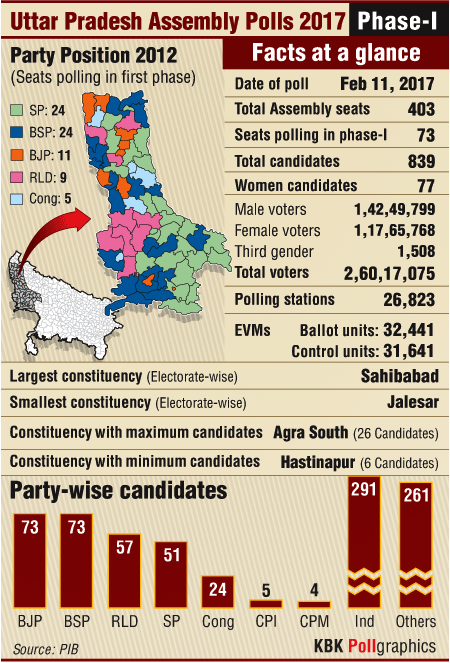The seven-phase Uttar Pradesh assembly election kicks off in the communally sensitive western region of the state on Saturday.
Rediff.com's Aslam Hunani examines past and present election trends in the 73 constituencies that will vote in the first phase of the poll.

Uttar Pradesh, the most crucial state in the five state assembly elections of 2017, goes to the polls on February 11, starting with Western UP.
The state will vote in seven phases ending March 8 to elect a total of 403 MLAs.
In the first phase, elections will be held in 73 constituencies across 15 districts, which include the hot-button areas of Muzaffarnagar and Dadri.
The polarised atmosphere in the region after the Muzaffarnagar riots of 2013 had boosted the Bharatiya Janata Party in the 2014 Lok Sabha election.
It had set the tone for the entire state with the BJP winning 71 of UP's 80 Lok Sabha seats.
Though the state faces a number of issues -- with law and order being the major one -- communal and caste politics will play a key role this time too.


The contest in Western Uttar Pradesh will be quadrangular with the ruling Samajwadi Party forming an alliance with the Congress to face off the BJP, Mayawati's Bahujan Samaj Party and Ajit Singh's Rashtriya Lok Dal.
Of the 73 seats that go to the polls in the first phase, the BSP and SP have 24 sitting MLAs each.
The BJP has 11, the RLD 9, the Congress 5.
According to the Association for Democratic Reforms, 839 candidates will contest the election in these 73 constituencies.
- 'Meri toh Mayawati hai, kasam se'
- 'Bas Modi hi hai BJP mein, aur kuch nahi hai'
- Inside the Samajwadi Party war room

Of the 836 candidates analysed by ADR, 168 (20 per cent) have declared criminal cases against them.
143 candidates (17 per cent) have declared serious criminal cases against them, including cases related to murder, attempt to murder, kidnapping, crimes against women, etc.
Of the 73 candidates who are contesting on BJP tickets, 29 have criminal cases registered against them while 28 of the 73 candidates fielded by the BSP have criminal cases against them.
19 RLD candidates, 15 SP candidates, 6 Congress candidates and 38 Independent candidates in the fray are named in criminal cases.
When it comes to candidates with serious criminal cases against them, the BSP tops the list by fielding 26 (36%) candidates.
It is followed by the BJP (22 or 30%), the RLD (15 or 26%), the SP (13 or 26%).
There are 34 Independents 12%) with serious criminal cases against them.
A whooping 302 candidates in phase I are crorepati candidates.
Around 119 candidates have wealth of ₹5 crore and above, while 103 candidates have wealth between ₹2 crores and ₹5 crores.
The richest candidate in the fray in the first phase is Nazir Ahamad.
The Congress candidate from the Agra South constituency is worth more than ₹211 crores.
The 'poorest' candidate is an Independent from the Thana Bhawan constituency, who has declared zero assets in the sworn affidavit.

On key indicators like education and women's participation, the region remains a poor performer.
At least 402 candidates (48%) have declared their educational qualification to be between Class 5 and Class 12.
And only 70 (8%) of the candidates in the fray for the 1st phase are women, which is also representative of the deep gender divide in the state.










